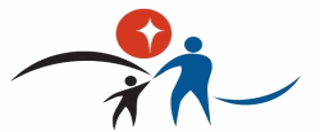Wellbeing

“R U OK? started as a National Day of Action, but it’s grown into a conversation movement.”
- Katherine Newton - CEO, R U OK?
Yesterday, 12 September 2024, was R U OK?Day. But life happens every day, so we're calling on people across Australia to ask R U OK? Any Day.
Thousands of community groups, workplaces, schools, suicide prevention networks, and sports clubs across the nation, from the Top End to Tasmania, are coming together to champion the 'Ask R U OK? Any Day' message and encourage meaningful conversations throughout the year.
How to ask R U OK? Any Day
Spot the signs
The people you care about go through life's ups and downs every day. There will often be signs that someone is struggling, such as changes in what they're saying or how they're behaving, or you might know that they have something going on in their life.
Whenever you spot the signs that someone isn't themselves, trust your gut and ask R U OK?
Pick your moment
Choose somewhere relatively private where they will feel comfortable to open up. Ensure you have enough time to genuinely listen to what they have to say.
Use ALEC to have a conversation
ALEC is an acronym for the 4 steps of an R U OK? conversation:
1. Ask R U OK?
Ask in a way that feels right for you (you don't need to use the exact words, 'are you OK?'). You could point out things you've noticed in a non-judgemental way.
2. Listen
Have an open mind and actively listen to what they are saying. Don't rush or interrupt them, but you could encourage them to explain.
3. Encourage Action
Ask what they've done in the past that has helped. You can encourage them to access support or do something that might lighten the load.
4. Check in
Stay in touch after the initial conversation. Ask how they've been feeling and repeat the above steps if needed.
Find more conversation tips here.
Ask early and often
You don't have to wait until someone is in crisis to ask, 'are you OK?'. Checking in regularly can help prevent small things from becoming big things.
Make meaningful conversations a part of your everyday relationships with friends, family, team mates and colleagues.
Support is available
You don’t have to have the answers or be able to solve someone else's problems.
Help is available. Head to Health can be a good place to start. It's a free directory of Australia’s mental health services and resources.
You could also call a crisis support service like Lifeline on 13 11 14 for immediate support and advice. If you believe someone’s life is in danger call 000 (triple zero).
Find more support services here.
Donna Al

